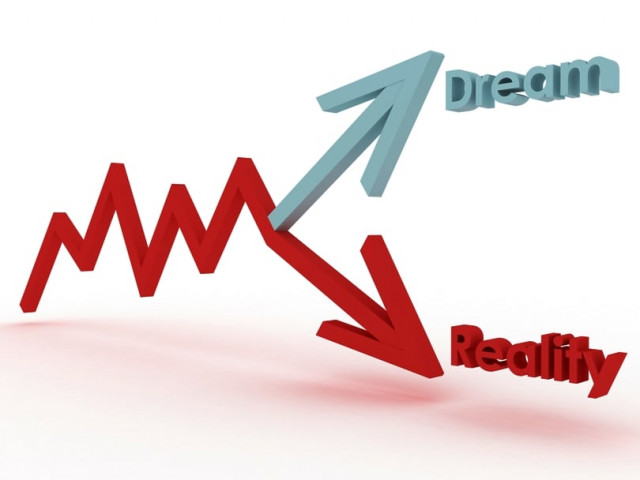How to operate in an uncertain economy?
Treating economic crisis like an opportunity is the key to winning.

Volatility in the marketplace is here to stay, for both Pakistan as well as globally. Businesses have to reorganise and restrategise to derive maximum benefit from these challenging circumstances. Best way to learn is from experiences of companies who have gone through similar predicaments and come out winners. Asian crisis (1997) and Argentine crisis (1999-2002) are great recent examples to research and reapply.
Ideal approach is to set an ambitious long-term vision, keeping in view the country’s economic outlook, competitive challenges as well as market growth opportunities. You need to be ambitious yet cautious. To get the maximum, link the vision to a sense of purpose. Any business activity with a ‘higher purpose’ built-in will induce more passion and bring better results.
Companies, who shine in an economic crisis, are those who are lean and agile. Reaction time to external stimulus needs to be minimised as circumstances will rapidly change. Inflation and depreciation will impact consumer affordability and any misstep will lead to loss of market share or reduced profitability.
Organisations need to rightsize, hence, eliminate any fat or duplication. Top talent must be retained as experienced employees will be essential at this critical phase, so never compromise on salary and benefits while trying to become lean.
Certain skills will have to be honed and developed in the gene pool of every employee in order to handle the challenging circumstances. These include ability to embrace change, displaying ‘can do’ attitude and an innate desire to eliminate non-value added cost via simplification and standardisation. Idea is to achieve high performance at low cost and minimum waste and if any corporate culture can internalise these traits, they will have a distinctive competitive advantage.
You will need courage, bias-to-action, confidence, accountability and a smart dedicated team oozing with passion to win in order to come out unscathed. Don’t try to recreate the wheel but inculcate a culture of rapidly adopting best practices, driving creativity and an inquisitive mindset. Challenge each cost items, do zero-based budgeting on everything including your office space, travel cost, all the way down to stationary and cafeteria.
In addition, work towards lowering your exposure to foreign goods and raw materials. Localise as much as possible your systems, services, products and their components. Remember that in an economic crisis ‘cash is king’. Create liquidity by reducing receivable, negotiating longer payment terms and tightening your working capital.
Company reputation and strong equity of the brands will be the strongest weapon. Continue to invest in strong equity-building programmes even during these difficult times. Never allow your brands to bleed, price-up smartly and frequently but keep the increments at a minimum.
Any company that treats an economic crisis like an opportunity rather than a doomsday scenario will eventually win. Exports become cheaper with a weaker currency, so focus today and expand your reach into international market to hedge your business.
Finally, never take your eyes away from governance and controls as they can single-handedly bring down a company during an economic emergency.
All business leaders today must question whether they and their organisations are programmed to handle uncertainty, if not, they must take appropriate action.
THE WRITER WORKS IN THE CORPORATE SECTOR AND IS ACTIVE ON VARIOUS BUSINESS FORUMS AND TRADE BODIES
Published in The Express Tribune, July 16th, 2012.



















COMMENTS
Comments are moderated and generally will be posted if they are on-topic and not abusive.
For more information, please see our Comments FAQ